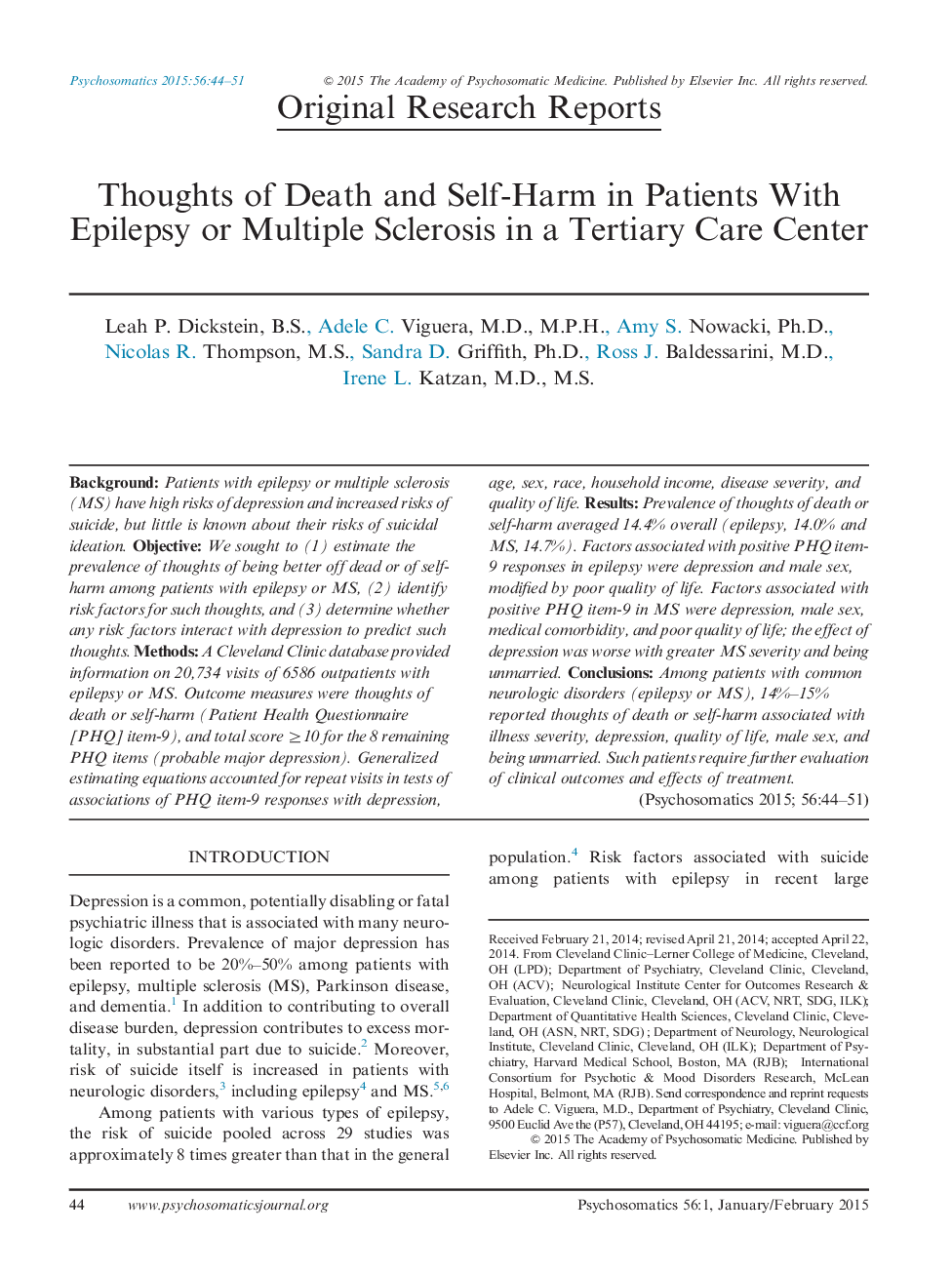| Article ID | Journal | Published Year | Pages | File Type |
|---|---|---|---|---|
| 337433 | Psychosomatics | 2015 | 8 Pages |
BackgroundPatients with epilepsy or multiple sclerosis (MS) have high risks of depression and increased risks of suicide, but little is known about their risks of suicidal ideation.ObjectiveWe sought to (1) estimate the prevalence of thoughts of being better off dead or of self-harm among patients with epilepsy or MS, (2) identify risk factors for such thoughts, and (3) determine whether any risk factors interact with depression to predict such thoughts.MethodsA Cleveland Clinic database provided information on 20,734 visits of 6586 outpatients with epilepsy or MS. Outcome measures were thoughts of death or self-harm (Patient Health Questionnaire [PHQ] item-9), and total score ≥10 for the 8 remaining PHQ items (probable major depression). Generalized estimating equations accounted for repeat visits in tests of associations of PHQ item-9 responses with depression, age, sex, race, household income, disease severity, and quality of life.ResultsPrevalence of thoughts of death or self-harm averaged 14.4% overall (epilepsy, 14.0% and MS, 14.7%). Factors associated with positive PHQ item-9 responses in epilepsy were depression and male sex, modified by poor quality of life. Factors associated with positive PHQ item-9 in MS were depression, male sex, medical comorbidity, and poor quality of life; the effect of depression was worse with greater MS severity and being unmarried.ConclusionsAmong patients with common neurologic disorders (epilepsy or MS), 14%–15% reported thoughts of death or self-harm associated with illness severity, depression, quality of life, male sex, and being unmarried. Such patients require further evaluation of clinical outcomes and effects of treatment.
